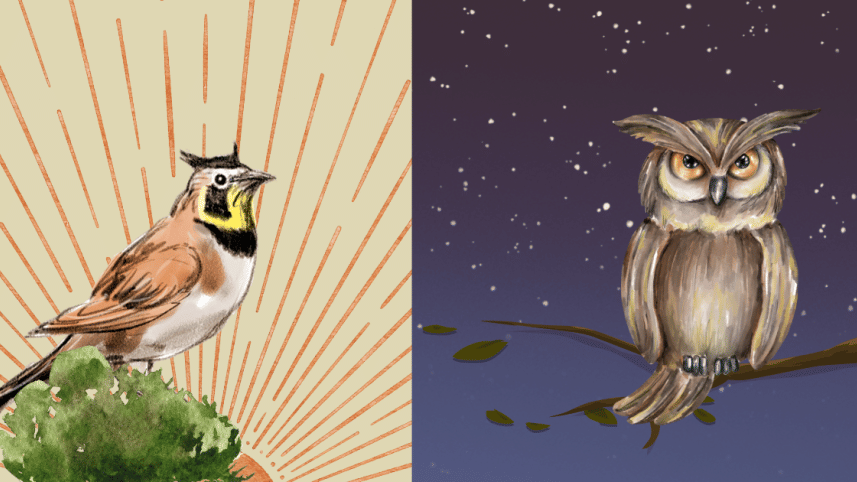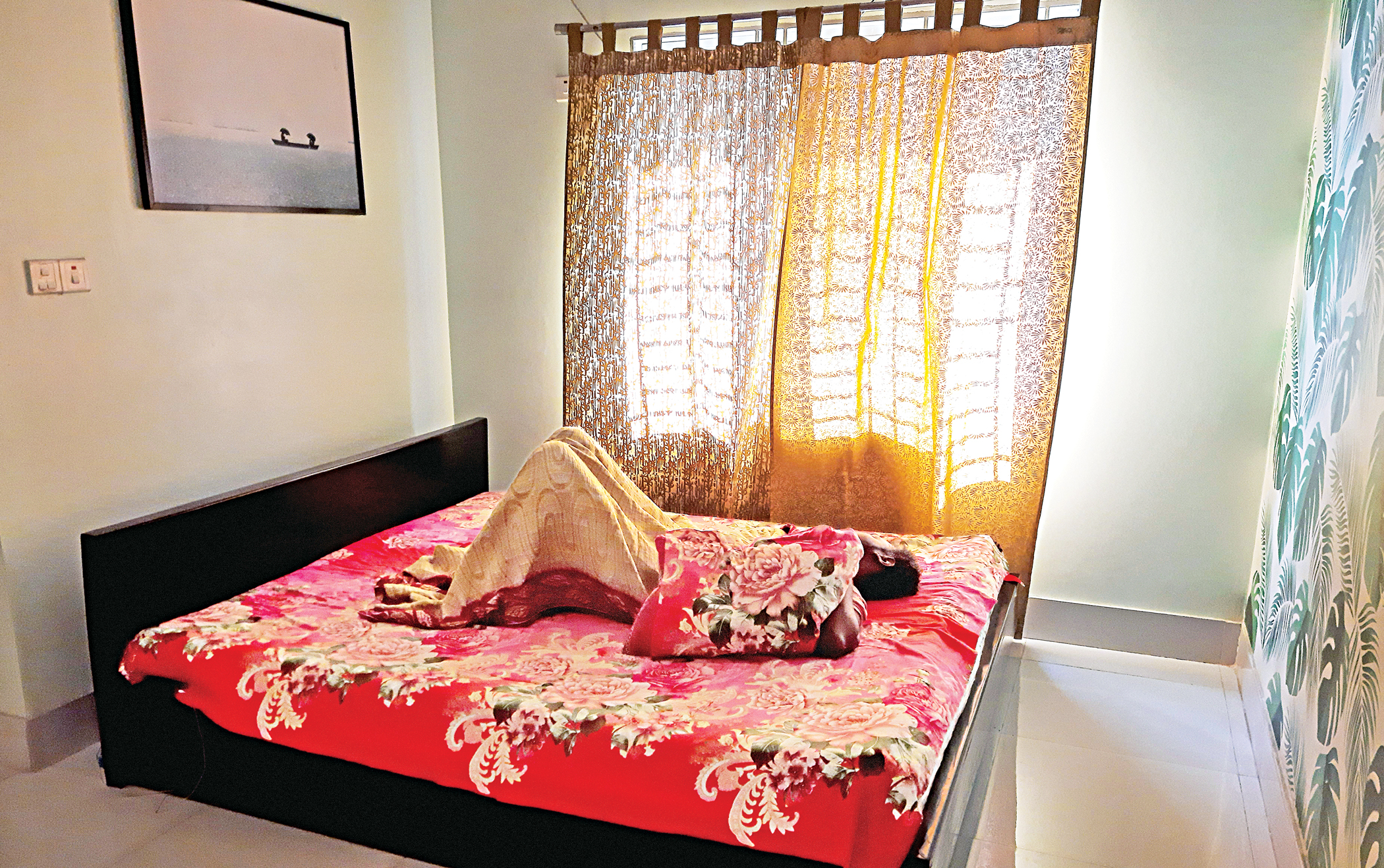Morning larks or night owls?

"True silence is the rest of the mind, and is to the spirit what sleep is to the body, nourishment and refreshment."
– William Penn (1644 - 1718)
We all have an internal clock that regulates many parts of our bodies, including our sleep cycles. This clock is generally synchronised with environmental light, explaining why we are the sleepiest when it's dark outside and most alert throughout the day. Today's world favours early birds. Schools and work shifts usually begin around 8am, and while this is about routine, early risers are also preferred culturally.
Now, one's internal clock can be impacted by a variety of different cues, leading to considerable differences when compared to someone else's. If you're a night owl, some habits (such as eating late dinners regularly or exposing yourself to strong non-ambient light in the evening), may have helped train your internal clock to be a bit more delayed than usual.
While being an early bird does not rule out the possibility of experiencing a depressive episode, being a night owl increases your chances of developing mental health issues, such as depression and anxiety. In fact, one of the main aspects to consider if you are stressed or depressed is your sleep quality. Insomnia and oversleeping can both be early signs of a mental health disorder. Despite this, we continue to describe night owls as being "lazy" or "irresponsible."
A few years ago, I had the opportunity to work with a mental health start-up that mostly served students with serious or moderate psychological illnesses. The students, or even the young people, who came to see experts had one thing in common: being night owls. And their number appears to be rising with time.
We take the term "modern" so seriously that our children are forced to abandon our forefathers' habits. Yes, superstition had a major influence over earlier periods of the world, but we must realise that there was something in their routine due to which physical and mental illnesses were much less common. A new survey, however, indicated that staying up late increases one's risk for type 2 diabetes and heart disease. The study also found that night owls were more sluggish, had lower aerobic fitness levels, and burned less fat while resting and exercising than early birds.
According to research published in the journal Experimental Physiology, night owls were also more likely to be insulin-resistant, which means their muscles require more insulin to acquire the energy they need. There is strong evidence to suggest that being a late sleeper increases your risk of metabolic and cardiovascular illnesses.
Another study in the Biological Rhythm Research found that nighttime hours are directly related to how lonely one feels. The inclination to wake up later, go to bed later, and schedule activities for later on in the day is referred to as the "evening period." Psychological conditions like depression and personality factors like neuroticism have also been linked to this predilection. These have connected time to poor emotion control and unfavourable biases in emotional processing. One explanation for this association is loneliness or social isolation, which is reflected in a discrepancy between an individual's ideal and real social relationships.
Social connectivity has been related to physical and mental problems, while a lack of it has been linked to physical and psychiatric disorders. MRI investigations on the relationship between grey matter volume and loneliness have yielded inconsistent results. According to existing data, the nighttime hour is associated with higher levels of perceived loneliness.
A few days ago, I was attending the 5th Bangladesh Marketing Day, wherein the first-generation marketers of Bangladesh were asked what they don't see in the present age when it comes to recruiting. The speakers described night owl recruits as having short attention spans, technological addiction, and indiscipline.
So, even if you feel like you're living your best life when it's late at night, being a night owl has some drawbacks.
Most night owls still have to wake up early in the morning because of their job schedules or family responsibilities, which means that many of them don't get enough sleep. Disrupting one's sleep pattern may have unnoticed negative effects on their overall health, in addition to having visible effects on how energetic they are during the day. Sleep disruptions may result in the onset of insomnia and morning drowsiness, which can lead to mood disorders, poor concentration, increased pain and, in extreme cases, hallucinations. But a simple lifestyle change will ensure strong ideals, technological proficiency, and selective concentration for the current generation, enabling them to be vibrant members of today's workforce.
Nushakha Israt is a student of the Department of Marketing at Jahangirnagar University.



 For all latest news, follow The Daily Star's Google News channel.
For all latest news, follow The Daily Star's Google News channel. 
Comments